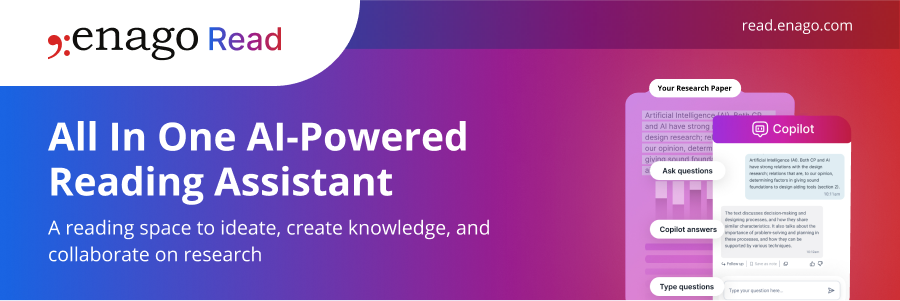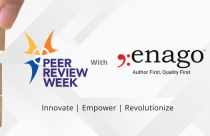Are Peer Reviews Reports Being Written By Early Career Researchers?

Peer review seeks to ensure scientific integrity. All good journals use peer review to decide whether or not an article is suitable for publication. Peer reviewers should be established researchers with a great deal of expertise in their field. They check that submitted papers are accurate, clear and complete which is a critical part of the publication journey. The report provided by the peer reviewers should also be unbiased to both the journal and the author of the paper.
Although there are sometimes problems with the process, peer review remains the only widely-accepted way to validate research. However, a surprising new study reports that some peer reviews are actually written by early career researchers.
Reviews by Early Career Researchers?
A study, reported on by Science, collected responses from almost 500 scientists with respect to the peer review reports. Around three-quarters of respondents were based in North America and most worked in the life sciences. Respondents were asked about their experiences writing peer reviews as early career researchers. “Early career researchers” or ECRs include anyone who is not a leader of a research group. This ranges from undergraduates to postdoctoral researchers and research assistants.
Around 80% of respondents said that ghost-writing a peer review for a Principal Investigator (PI) was ethically wrong. Despite this, half said that they had ghost-written at least one peer review.
Three-quarters of respondents had “co-reviewed.” This meant they had provided text or ideas for a peer review without being named as an author. Many ECRs(95%) felt that this was a useful form of training in peer review, and 73% thought that it was ethical.
In total, 79% of the postdocs and 57% of the graduate students who responded to the survey had contributed ideas and/or text to peer reviews written under their PI’s name. This clearly shows that co-reviewing and ghost-writing are common practices, at least within North America and the life sciences.
The Ethics of Ghost-Writing
Ghost-writing and co-reviewing raise a number of ethical issues. Firstly, the names of early career researchers who ghost-write or co-review are usually not included in the finished review. In fact, 46% of respondents said that they knew the reviews they had written were sent to the journal with only the PI’s name. In the survey, 82% of respondents said that it would be valuable to have their name added to a peer review report.
This means that ECRs miss out on credit for their own work. However, trainees might feel unable to refuse requests to ghost-write from their PI. Doing so could hinder the progress of their career. They may also feel it is simply “part of their job.” Unfortunately, this practice robs trainees of the chance to use the experience on their CV, or to be recognized as a peer reviewer in their own right.
Some ECRs may write excellent peer reviews. However, the editor cannot properly assess the review if they do not know the true author. The editor falsely believes they are getting the benefit of the PI’s experience and knowledge.
In the worst case, a poor paper may be published if the true reviewer does not have the skills to properly assess the science. This is more grave because this would affect the quality of research being published.
When a PI submits a ghost-written review, they deceive both the journal editor and any future readers. This may also be true of co-reviewing. However, this depends on the true role of the PI and whether the trainee is named on the review.In the end, the practice of ghost-writing still remains a form of scientific misconduct.
What Else Did the Study Uncover?
Interestingly, around 4 out of 5 survey respondents said ghost-writing was unethical. Yet many of these scientists admitted to participating in ghost-writing. Why?
In many cases, the trainees accepted that only the PI’s name would be attached to the review. This is seen as normal practice. Also, most journals ask reviewers not to share the content of articles. Admitting to using a ghost-writer would be a breach of this rule.
Some scientists also felt that journals do not clearly ask for the names of co-reviewers. Most researchers believe that reviews should only be written by the invited reviewer. Admitting to co-reviewing or ghost-writing breaks this accepted norm.
Interestingly, three-quarters of respondents had not asked their PI why their names were not included on the review. This suggests a lack of communication. For those that had discussed the issue, responses of the PI included:
- “I forgot”
- “I was in a hurry and didn’t understand the journal website”
- “This is common practice”
- “It is part of your job description”
- “This is how you learn to write reviews”
Solving the Peer Review Problem
This study could lead to reform of the peer review process. As a first step, the authors suggest that journals clearly ask for the names of co-reviewers. This would have the added benefit of making more scientists available for future reviews. Being named as a co-reviewer allows early career researchers to take credit for their work, improving their career prospects.
PIs and ECRs should discuss and agree who is to take credit for the work. This should happen before they write the review. Institutions could help by providing training. Also, if a PI wishes to use a co-reviewer, they should first ask the journal for permission.
The problem of ghost-writing and co-reviewing could be avoided by making reviews and reviewers public. PIs would be less likely to submit a review written by others if the review was actually published under their name.
The authors of the study believe that peer review should be treated as any other academic work, such as writing a paper. With this in mind, it is essential that credit is given to the true authors. This will help to build confidence in the peer review process.
Are you an experienced peer reviewer? Or are you an early career researcher who has been asked to ghost-write a peer review? Share your thoughts in the comments below.











